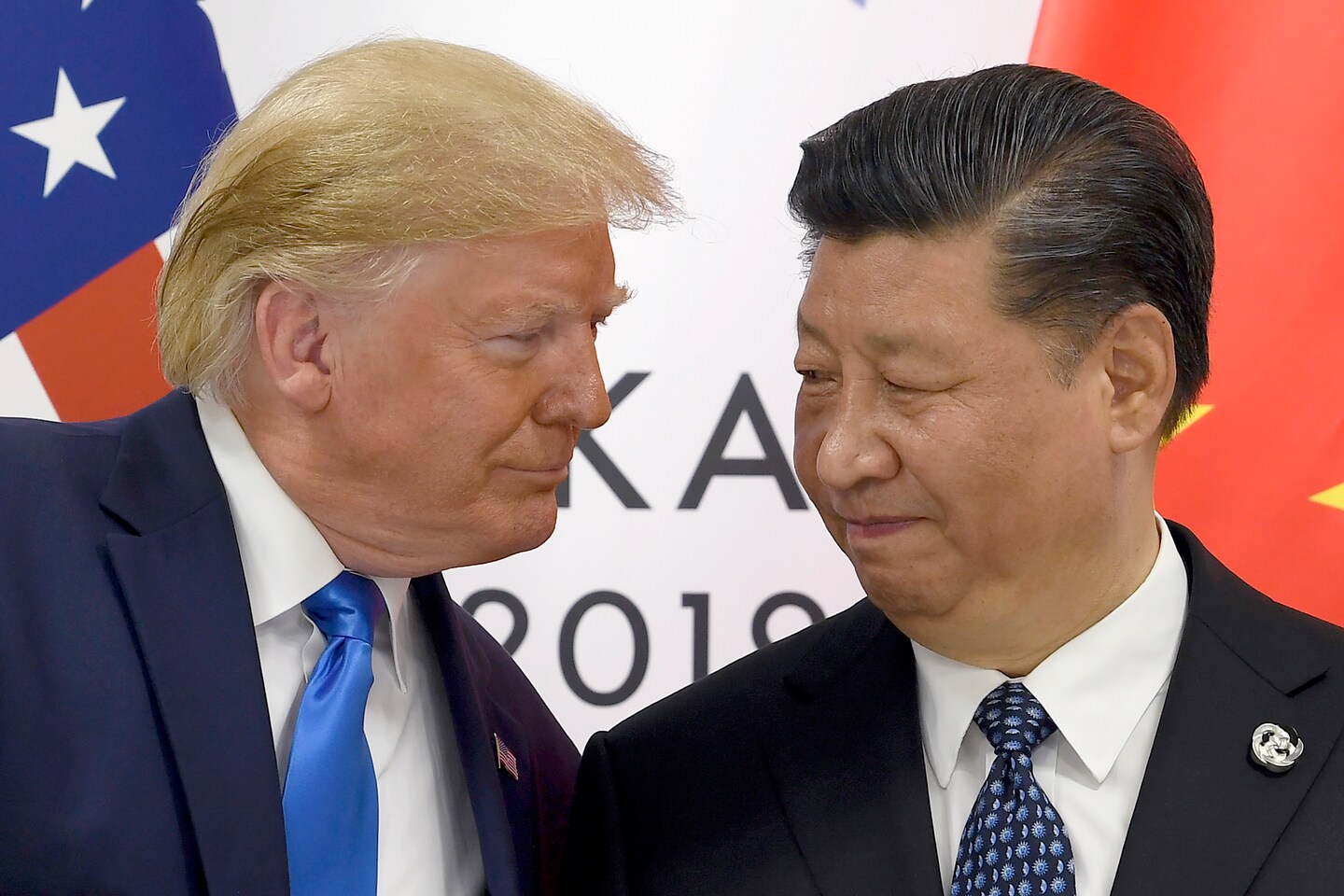America’s reputation has suffered under covid-19, but China has struggled to step into the void

“It’s gonna be a fantastic year,” Trump said.
That same day, worrisome news emerged out of the Chinese city of Wuhan, where officials informed the World Health Organization of patients with a mysterious form of pneumonia.
It took weeks for most global decision-makers to take note of what would come to be known as covid-19, the disease caused by the novel coronavirus, and months before the full implications became clear. By early October, the coronavirus had killed more than 1 million people and plunged the world into its worst economic tailspin since World War II.
The past nine months have exposed structural weaknesses around the world, straining health care systems, exacerbating poverty and worsening inequality.
The international reputation of the United States, the world’s worst-hit country, has suffered — but China, its main geostrategic rival, has struggled to capitalize on the moment. According to a survey by the Pew Research Center, conducted between June and early August, a median of 61 percent of respondents from 14 advanced economies said China “has done a bad job dealing with the virus.” The United States’ handling of the pandemic has met even deeper international skepticism, with a median of 84 percent describing its response as bad.
Different factors are at stake in each country, but both Trump and Xi have found themselves accused of obscuring information about the pandemic.
For months, Trump and his administration downplayed the virus’s threat and undermined U.S. scientists tasked with handling the outbreak. Even when Trump himself was infected with the virus earlier this month, he showed reluctance to wear a mask and publicly acknowledge the risks posed by covid-19.
Meanwhile, China, where the virus first emerged, has managed to keep its infection level far lower than that of the United States, but it may have done so at a high cost. As the virus began to spread globally, Beijing provided little transparency, relying instead on censorship to stifle public anger, and “helping to turn a potentially containable threat into a global calamity,” according to Kenneth Roth, the executive director of Human Rights Watch.
The coronavirus didn’t create China’s or the United States’ reputational weaknesses, but does appear to have exacerbated them.
Early in Trump’s presidency, much of the world watched his conduct with a degree of amusement, hoping that Congress, the Supreme Court or his own advisers would keep the president in check.
But U.S. institutions have largely stood by as Trump pulled out of a growing number of international commitments. Domestically, the United States became increasingly polarized, prompting concerns abroad that U.S. democracy may be in worse condition than anticipated.
Trump’s recent suggestions that he may not accept the outcome of November’s presidential election have manifested a growing global perception that the U.S. has entered a period of decline.
This could have been a chance for China to vie for recognition.
While the United States, in many Western capitals, appears to have become a less reliable ally, China, a tempting economic partner, has embraced a style of leadership many democratic governments find unpalatable.
Beijing has made clear what it thinks of the West’s criticism. When Australian lawmakers demanded an investigation into the origins of the coronavirus earlier this year, Xi responded with fury, imposing tariffs on some Australian products and banning others.
In a Pew Research Center survey earlier this year, 24 percent more Australians said they viewed China unfavorably than they did last year.
Global disapproval of China’s handling of the pandemic, the survey’s authors found, has colored “people’s confidence in Chinese President Xi Jinping” and “people’s overall views of the country.”
Across the 14 wealthy nations surveyed, including the United States, a median of almost four in five respondents said “they have not too much or no confidence in [Xi] to do the right thing regarding world affairs.” Favorable views of China in nine out of 12 countries dropped to their lowest levels since the survey was first conducted almost two decades ago.
But while confidence in China plummeted, approval of the United States also dropped to a record low in Australia and among six other allies, including Britain, Canada and Japan. Across many of the nations in question, Trump is less trusted than Xi.
Both countries have paths by which to build their global image.
China’s economy is among the first on track to recovery, and some countries in its sphere of influence — especially those not included in the Pew survey, which focused on advanced economies — have become more dependent on Beijing’s help this year.
“Beijing is still intent on seeing China rise to the top in global affairs and it sees the current disorder from the virus as a way to achieve that goal,” Nadège Rolland, a fellow at the National Bureau of Asian Research, told Radio Free Europe in July.
Beijing has vowed to boost economies in central Asia and draw the region further into its Belt and Road infrastructure initiative that provides loans with the implicit goal of building support for Beijing’s political plans. China has donated medical equipment and announced an increase in investments in Africa. And in yet another effort to reshape the narrative, Beijing pledged to provide certain countries with quick — and in some cases free or cheap — access to a potential Chinese vaccine.
And in the United States and many foreign capitals, Trump’s opponents hope that Democratic presidential nominee Joe Biden, who is leading in polls, could mend strained ties if elected.
Echoing those hopes, Biden’s running mate, Kamala D. Harris, said during the vice-presidential debate on Wednesday that keeping “our word” has “always been part of the strength of our nation.”
Read more:






